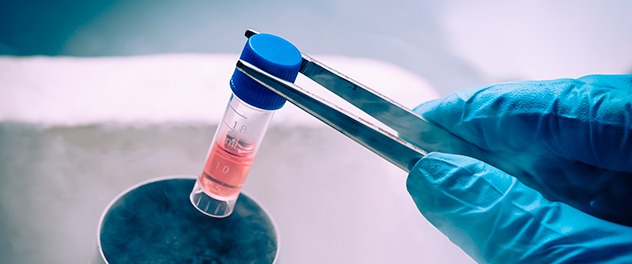 Fighting cancer with stem cells
Fighting cancer with stem cells
The Brain Tumor Stem Cell Research Lab converts human fat cells into cancer-fighting Trojan horses and delivers the cells to patients in a gel during brain cancer surgery.
Local Administration of Stem Cells From Fat During Brain Surgery Using a Gel
The Brain Tumor Stem Cell Research Lab at Mayo Clinic is evaluating the efficacy of the commercial fibrin sealant as a scaffold to hold fat-derived human mesenchymal stem cells (hMSCs) within the brain cancer resection cavity during surgery. This will make possible the local application of bioengineered, tumor-attacking hMSCs to be delivered to tumor cells that may remain inside the resection cavity during surgery.
Dr. Quinones-Hinojosa's lab has successfully bioengineered mesenchymal stem cells derived from human fat to attack a specialized subset of glioblastoma cells, brain tumor initiating cells (BTICs). However, there is still a need to deliver hMSCs efficiently into the brain tumor resection cavity during surgery to kill residual tumor cells.
A two-component fibrin sealant that has been approved by the Food and Drug Administration and is used widely in surgical procedures has been previously shown to efficiently hold bone marrow derived mesenchymal stem cells for local therapy of glioblastoma in a mouse model. However, Dr. Quinones-Hinojosa's team is using human fat-derived mesenchymal stem cells (hMSCs) that are bioengineered to secrete bone morphogenetic protein 4 (BMP4) — and that are more readily available — and evaluating the cells' various functions, such as viability and proliferation within a fibrin scaffold.
The team's goal is to be able to deliver bioengineered, tumor-killing fat-derived mesenchymal stem cells locally into the resection cavity of patients with glioblastoma during surgery, ultimately significantly prolonging the patients' lives.
Project team
Lab members developing a gel for the local administration of mesenchymal stem cells during brain surgery include:
- Virgínea de Araujo Farias, Ph.D.